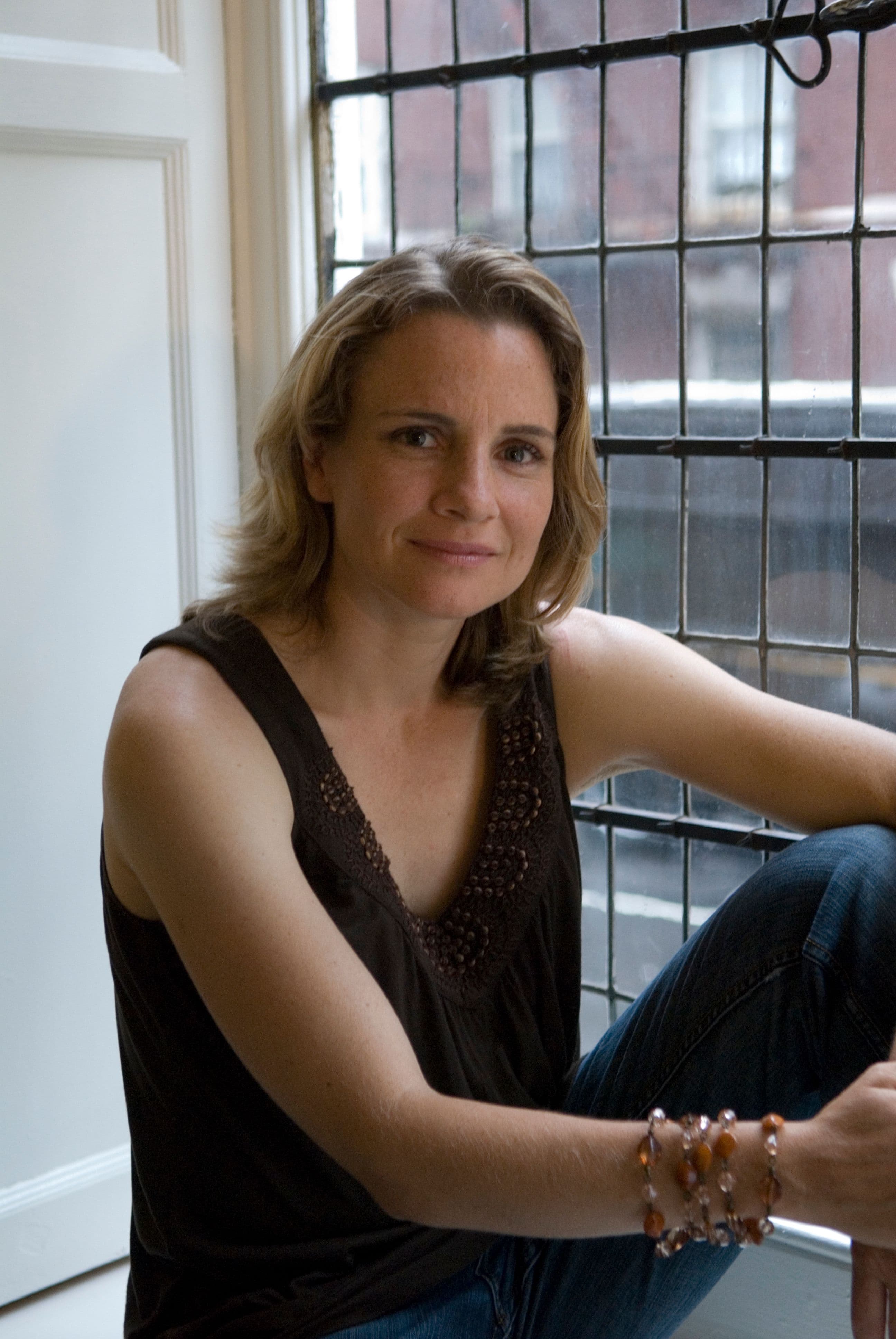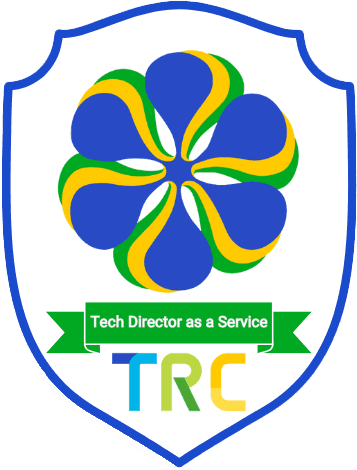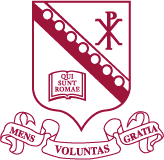AUTHOR

Where are you from, and what brought you to Rome?
I grew up in Hillsborough, North Carolina. My parents both were professors, and from 1985-1986, both had sabbaticals; my father received a grant from the American Academy in Rome, and we lived in a house across from the Academy.
Can you describe your experience at St. Stephen's? What are some of your fondest memories of that time?
I look back at that year as the most magical of my life. I was seventeen going on eighteen, and that's a pretty magical year anyway, but pair that with being in Rome and getting to go to a school like St. Stephen's, and it was the highlight of my childhood. I remember sneaking into the Palatine on Friday nights, bringing cakes and pastries with us, and playing charades. I also remember arriving from Hillsborough and trying to cross the Viale Aventino -- it was so busy! My sister and I would creep out, and then we would have to run back again because we weren't used to the city streets. I also remember the food. Going to St. Stephen's and having a sit-down lunch and a bar with a real cappuccino was a real change from my school food back home. There are so many things: I remember going to Puglia and seeing the Trulli for my field trip and thinking, "This is just not the standard field trip fare."
Being with kids from all over the world who spoke at least two languages fluently was an incredible awakening for me; there were only two kids in my year who were monolingual; everyone else had at least two languages down, fluent. It was 1985-86, and the U.S. had just launched airstrikes against Ghaddafi; I remember coming out from school one day and seeing on the wall, "Americans go home." We stopped speaking English in public places, and because we had friends who spoke so many different languages, we had this chameleon-like aspect that taught me the power of language; we could all of a sudden hide into Turkish or Spanish or French; one of us could take over linguistically, and we stopped being Americans, allowing us to evade all of those eyes in a way that other tourists could not. At one point, fifteen of us from St. Stephen's went to Crete with two students from another school: it was probably a dangerous venture to go to Crete in those years, but two of the girls were Greek, and there were so many different languages being spoken that we were never seen as Americans. No one could quite pin us as anything, so whatever rage they were going to feel against us culturally couldn't happen. That cemented my understanding of what language could do, and it evoked in me a lot of interest in language.
After St. Stephen's, what came next?
After St. Stephen's, I went to Connecticut College. I spent my junior year of college abroad in Bologna with Brown University; they have a language-focused program, so I chose it. The year after I graduated from college, I received a grant from the Watson Foundation to go to Italy and interview Italian women writers. I spent the year traveling around and reading women writers from different areas of Italy and then interviewing them. My year at St. Stephen's kicked off my love of Italy and, after that, all I wanted to do was get back to Italy.
Did your time at St. Stephen's prepare you for your career?
I had a teacher named Mr. Vigliorolo my senior year, and he was my awakening to the fact that I wanted to teach. He had this way of teaching that made it feel like you were not in a classroom but instead were invited to a high-end dinner conversation and that you better be prepared because if you weren’t prepared, it was your loss. It was the first time I felt like I wasn't just studying or having to do homework, it felt like, "okay, let's talk." I remember trying to convince him that Joseph Conrad was a sub-par writer, and he loved Conrad. Still, he would listen, he would debate and take seriously what we had to say, no matter how outlandish it was, and that type of attention to the students was something I had not experienced before and that convinced me that I wanted to go on to teach. I thought I wanted to teach high school, but then I realized that college teaching would give me more time to write, so I then started thinking, okay, I definitely want to teach, but in order to accommodate my writing, I should go into teaching college. I taught high school English for two years at Sacred Heart on the Upper East Side in New York, and I loved it, but I didn't find any time for writing, so then I went on to get a master's and then an MFA; an MFA is a terminal degree,, but I really wanted to get a degree in teaching as well because I wanted to know more about how to recreate the kind of experience that Mr. V was able to create and be the best teacher I could so I did a Doctorate in Education [at Teachers College, Columbia University] and then got a job teaching at William Paterson University, and I've been there ever since.
You are the author of the novel Broken as Things Are. Your works of short fiction have appeared in Boulevard, One Story, The Chattahoochee Review, The Literary Review, Harpur Palate, Spork, and other journals and anthologies. You have also authored several translations of Italian works. Many of your short stories include Italian characters and Italian cities. Often, these works touch implicitly or explicitly on the unique structure of the Italian language (I am thinking in particular of your short story, "The Meaning of Ends"). In Broken as Things Are, the main characters, siblings, communicate using a secret language. What is it about language that fascinates you?
I think so many of my stories are grounded in language that there is a through thread there, grounded in that year when I recognized the vast potential for language; I remember thinking, "how is it fair that the past participle of the verb paired with the verb 'to be,' if there's only one man in the group, has a male ending?" And that stuck with me since high school, and it was the genesis of my story, "The Meaning of Ends," which is about language and sex; again, I can trace the roots back to St. Stephen's. I grew to love Italian when I was at St. Stephen's [and that informs] my translation work; I love the language, I love its musicality, and, as a writer, I love living in a place where I am not using English too much. When you're divorced from your language, you begin to see its potential differently. I think there's this assumption in the United States that any book you read was originally written in English, and that’s just not true. Let's start with the Bible. Having grown up in the South, people would often say, "well, the Bible says..." and I thought to myself, "really? Well, which translation of the Bible? What if you look at the original? How does that change what the Bible says?" There are so many ways in which we get landlocked in our own language, in the United States in particular where we're just not as introduced to other languages and being in Rome, being at St. Stephen's, and not using my language all the time gave me a different appreciation of language. It was a game-changer for me in terms of my interests and what I wanted to write about. That [year abroad] also changed my trajectory because I majored in Italian Studies in college, and I then interviewed Italian women writers for the Watson Grant, which inspired my interest in translation.
What do you enjoy most about being a writer?
What I enjoy most is also what I fear most. When you're an academic --and I did, for a while, flirt with the idea of becoming a more traditional academic-- you're in dialogue with researchers and other authors, whereas when you're a writer, you basically start at ground zero every time you open a page. On the other hand, what I love the most is that freedom of, "wow, I can do anything right now." But it's also stultifying and terrifying at other times, so sometimes I have to set up scaffolding for myself, so I don't feel that, and yet, sometimes I feel like Road Runner when he's running, and he looks down and realizes, "Wait! There isn't anything here!" Sometimes I feel like that's true too; there's no real scaffolding; that's just an illusion I give myself to be able to write, which is part of what has drawn me to flash fiction writing. I do a lot of flash fiction writing. There are two pieces to that: one is having children--and therefore less time-- and the other piece is the terror of having to sustain something for so long. I get real joy out of flash fiction; it's more like writing a poem, it's condensed linguistically, and I can manipulate it, and that takes some of the terror out, and it augments the joy when I get something done.
What do you consider your greatest achievement (personally or professionally)?
I have to say, my children! I am very happy that my husband and I were able to raise our kids in Astoria, Queens. They went to public school, and my sabbatical year was spent in Brazil. They have been introduced to different cultures and languages, approaches, and ways of being as anyone ever could be. Astoria Queens is one of the most diverse places in the world; you really never have the sense that you're the White dominant class. You are in a melting pot. I remember having parties at their school, and there would be fifty-five different cultures represented. I grew up in a place that did not have much diversity, and St. Stephen's was able to give that to me. My daughter is currently living on a horse farm. She negotiated the whole thing in Portuguese, exchanging her work for riding lessons and living there, and that's possible because she has this worldly ability. My son is going to do a semester abroad in Rome next year. I am very proud that they have this international aspect in their lives, something I got from St. Stephen's.
Has it been a straight path for you, or do you feel you have been tested along the way to achieving the goals you've set for yourself? Can you talk about what some of those challenges have been and how you've surmounted them?
So definitely, the latter. At first, I felt like things came very easily: I won some awards and scholarships, and I thought, "this is nice, this is kind of fun," and then not so much. It has been an up and down ride, and I think ultimately it has been for the better; it has grown my robust, writerly self, and it has also made me know that writing is something I want to do because I love to do it. The winds of the marketplace can influence a lot of people, and I am not excluded from that. Still, I have come to understand that this is something I absolutely love; it's part of who I am, it's part of how I exist in the world, and so whatever happens in that other sphere, whatever piece of that I can't control, that is going to happen, and I am going to continue to do what I love. Having a teaching job has also allowed me not to be dependent financially on my writing.
Having kids was also challenging. I finished my novel, Broken as Things Are, just as my son was two and my daughter was born. I went on two national tours with that book. She had to come on both of them because I was breastfeeding her, so that was difficult, and just trying to dedicate time as a mother and trying to keep my writing going was hard. I feel both parenting and writing pull from the same creative place, and they're both demanding jobs, so at times I was very frustrated at not being able to achieve the balance that I wanted to; I guess that was achieved by the passage of time, kids growing up, and with age, you get a perspective you don't have when you're younger and you feel like, "this should be happening, that should happen, et cetera" and when it doesn't [happen], you have to adjust the way you see the world and, in the end, it's for the better because that ripples into other things.
Going into flash fiction, I've realized my love for it; my lifestyle accommodates this kind of writing, and my interests do [as well], so finding [flash fiction writing] has been a real upside for me. I used to write a lot of poetry, but poetry was never my thing. I liked writing it, but it was never my thing. [Regarding] longer work, I loved doing it, but it takes that sustained attention, and it waters down the language a little bit more, whereas flash fiction gives me both of those things at the same time.
What are some of the most important lessons from your professional experience that you would like to share with the next generation of St. Stephen's graduates?
St. Stephen's gives students such a tremendous gift, and that gift keeps on giving. The older I get, the more I recognize how that gift has given to me. It's just precisely the type of education that we need so desperately, an education that offers diversity in so many respects; I think students may not realize right now that it will be difficult if they come from the states to hear students their own age fluidly pass from one language to another or speak from actual experience about cultures and politics from all over the world. I feel like if there's anything that can break through prejudice and stereotypes, it's having friends that are from those cultures that are being insulted. When you know people who come from many different places, and you've had deep interactions with those people, it is so much harder to fall for the cheap tricks of politicians who try to get you to believe that people can be excised from your world. St. Stephen's offers that, and it's something that, from that point on, I have sought out, living in Queens, I wanted to raise my children there despite some of the difficulties of raising kids in the city because I wanted them to be in that atmosphere.
I remember Mr. V saying to my senior class when we were graduating, "to whom great things are given, great things must be expected." I would pass that mandate on to anyone graduating from St. Stephen's because they have been given so much, and I think a lot can be expected of them, too.
To learn more about Martha and her writing, visit her website.






